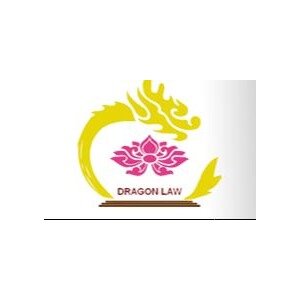Best Commercial Real Estate Lawyers in Haiphong
Share your needs with us, get contacted by law firms.
Free. Takes 2 min.
Free Guide to Hiring a Real Estate Lawyer
List of the best lawyers in Haiphong, Vietnam
About Commercial Real Estate Law in Haiphong, Vietnam
Commercial real estate in Haiphong, Vietnam, is a dynamic sector that encompasses a wide range of activities, including the buying, selling, leasing, and development of office buildings, industrial properties, retail spaces, and other business-related real estate. As one of Vietnam's key port cities and industrial hubs, Haiphong offers significant investment opportunities in commercial real estate. However, the development of commercial real estate projects requires careful navigation of local regulations and a thorough understanding of the legal landscape.
Why You May Need a Lawyer
There are several scenarios in commercial real estate transactions in Haiphong where legal assistance may be indispensable:
- Property Transactions: Buying or selling commercial property involves complex contracts. A lawyer can ensure that the terms are fair and protect your interests.
- Lease Agreements: Drafting and negotiating commercial lease agreements can require a deep understanding of real estate law to prevent future disputes.
- Zoning and Land Use: Legal advice may be needed to interpret zoning laws and ensure the intended use of the property complies with local regulations.
- Development Projects: Lawyers can assist in obtaining necessary permits and approvals for development projects, while ensuring compliance with environmental and construction laws.
- Dispute Resolution: When disputes arise, such as tenant conflicts or boundary disagreements, legal intervention can help reach a resolution.
Local Laws Overview
Understanding local laws is crucial in the Haiphong commercial real estate market. Here are some key areas to consider:
- Land Law: The Land Law regulates how land is used, leased, and transferred in Vietnam, including in Haiphong.
- Construction Law: This covers regulations pertaining to construction permits, project execution, and safety compliance.
- Environmental Regulations: Compliance with environmental protection laws is mandatory, particularly for industrial developments.
- Investment Law: Relevant for foreign investors, this outlines the requirements and restrictions on foreign investments in commercial real estate.
- Commercial Lease Law: Understanding the rights and obligations of landlords and tenants under Vietnamese law is essential for leasing arrangements.
Frequently Asked Questions
What is the process for buying commercial real estate in Haiphong?
Purchasing commercial real estate typically involves several steps, including: selecting a property, negotiating terms, conducting due diligence, signing contracts, and completing the transfer of land use rights.
Can foreigners buy commercial property in Haiphong?
Foreigners can invest in commercial property through joint ventures or forming a locally registered company, but there are specific regulations and restrictions that apply.
What are the typical terms of a commercial lease?
Commercial lease terms can vary but commonly include lease duration, payment terms, maintenance obligations, and termination clauses. Legal review of these terms is advisable.
Are there any zoning restrictions I should be aware of?
Yes, zoning regulations in Haiphong dictate the types of permissible developments in different areas. It is vital to verify zoning laws before purchase or development.
How do I resolve a commercial property dispute?
Disputes can be resolved through negotiation, mediation, arbitration, or litigation. Legal counsel can advise on the most appropriate course of action.
What permits are needed for a commercial building project?
Building projects typically require a construction permit, environmental assessment approval, and compliance with fire regulations, among others.
What taxes apply to commercial real estate transactions?
Transactional taxes may include Value Added Tax (VAT), land use fees, and corporate income tax on any gains from property sales.
Can I change the use of a commercial property?
Changing the use of a property may require approval from local authorities and compliance with zoning laws. Legal advice is recommended.
How does one conduct due diligence on a property?
Due diligence involves verifying the title, checking for liens or encumbrances, reviewing zoning regulations, and assessing any potential environmental issues.
What should I consider when entering a joint venture for real estate development?
A joint venture agreement should clearly outline the roles, responsibilities, profit sharing, and exit strategies involved, preferably reviewed by legal experts.
Additional Resources
Those seeking additional information on commercial real estate in Haiphong can refer to the following resources:
- Ministry of Construction: Provides guidelines on construction standards and regulations.
- Haiphong Department of Natural Resources and Environment: Offers information on environmental compliance and land use planning.
- Vietnam Investment Review: A publication offering insights into the investment climate in Vietnam.
- Real Estate Associations: Local real estate associations can provide networking opportunities and market insights.
Next Steps
If you require legal assistance in commercial real estate, consider these steps:
- Consult a Local Lawyer: Reach out to a lawyer specializing in Vietnamese commercial real estate for personalized legal guidance.
- Conduct Initial Research: Educate yourself on the basics of the legal process involved in your desired commercial real estate transaction.
- Prepare Documentation: Gather necessary documents related to your transaction, such as property deeds or business registration certificates.
- Schedule a Legal Consultation: Arrange a meeting with your legal advisor to discuss your needs, options, and legal strategy.
With the right legal support, navigating the complexities of commercial real estate in Haiphong can be managed more effectively, ensuring your investments are protected and compliant with local laws.
Lawzana helps you find the best lawyers and law firms in Haiphong through a curated and pre-screened list of qualified legal professionals. Our platform offers rankings and detailed profiles of attorneys and law firms, allowing you to compare based on practice areas, including Commercial Real Estate, experience, and client feedback.
Each profile includes a description of the firm's areas of practice, client reviews, team members and partners, year of establishment, spoken languages, office locations, contact information, social media presence, and any published articles or resources. Most firms on our platform speak English and are experienced in both local and international legal matters.
Get a quote from top-rated law firms in Haiphong, Vietnam — quickly, securely, and without unnecessary hassle.
Disclaimer:
The information provided on this page is for general informational purposes only and does not constitute legal advice. While we strive to ensure the accuracy and relevance of the content, legal information may change over time, and interpretations of the law can vary. You should always consult with a qualified legal professional for advice specific to your situation.
We disclaim all liability for actions taken or not taken based on the content of this page. If you believe any information is incorrect or outdated, please contact us, and we will review and update it where appropriate.









